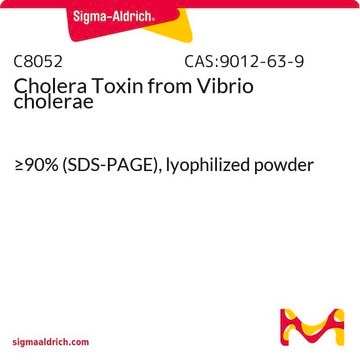L1790
L-685,458
>96% (HPLC), solid
Synonym(s):
(5S)-(t-Butoxycarbonylamino)-6-phenyl-(4R)hydroxy-(2R)benzylhexanoyl)-L-leu-L-phe-amide
About This Item
Recommended Products
Assay
>96% (HPLC)
form
solid
color
white
solubility
DMSO: >10 mg/mL
originator
Merck & Co., Inc., Kenilworth, NJ, U.S.
storage temp.
−20°C
SMILES string
O[C@@H]([C@H](CC1=CC=CC=C1)NC(OC(C)(C)C)=O)C[C@@H](CC2=CC=CC=C2)C(N[C@@H](CC(C)C)C(N[C@@H](CC3=CC=CC=C3)C(N)=O)=O)=O
InChI
1S/C39H52N4O6/c1-26(2)21-33(37(47)41-32(35(40)45)24-29-19-13-8-14-20-29)42-36(46)30(22-27-15-9-6-10-16-27)25-34(44)31(23-28-17-11-7-12-18-28)43-38(48)49-39(3,4)5/h6-20,26,30-34,44H,21-25H2,1-5H3,(H2,40,45)(H,41,47)(H,42,46)(H,43,48)/t30-,31+,32+,33+,34-/m1/s1
InChI key
MURCDOXDAHPNRQ-ZJKZPDEISA-N
Gene Information
human ... APH1A(51107) , APH1B(83464) , NCSTN(23385) , NOTCH1(4851) , NOTCH2(4853) , NOTCH3(4854) , NOTCH4(4855) , PSEN1(5663) , PSEN2(5664) , PSENEN(55851)
mouse ... Aph1a(226548) , Aph1b(208117) , Ncstn(59287) , Notch1(18128) , Notch2(18129) , Notch3(18131) , Notch4(18132) , Psen1(19164) , Psen2(19165) , Psenen(66340)
rat ... Aph1a(365872) , Aph1b(300802) , Ncstn(289231) , Notch1(25496) , Notch2(29492) , Notch3(56761) , Notch4(406162) , Psen1(29192) , Psen2(81751) , Psenen(292788)
Application
Biochem/physiol Actions
Features and Benefits
Legal Information
Storage Class Code
11 - Combustible Solids
WGK
WGK 3
Flash Point(F)
Not applicable
Flash Point(C)
Not applicable
Personal Protective Equipment
Certificates of Analysis (COA)
Search for Certificates of Analysis (COA) by entering the products Lot/Batch Number. Lot and Batch Numbers can be found on a product’s label following the words ‘Lot’ or ‘Batch’.
Already Own This Product?
Find documentation for the products that you have recently purchased in the Document Library.
Articles
Cancer stem cell media, spheroid plates and cancer stem cell markers to culture and characterize CSC populations.
Cancer stem cell media, spheroid plates and cancer stem cell markers to culture and characterize CSC populations.
Cancer stem cell media, spheroid plates and cancer stem cell markers to culture and characterize CSC populations.
Cancer stem cell media, spheroid plates and cancer stem cell markers to culture and characterize CSC populations.
Our team of scientists has experience in all areas of research including Life Science, Material Science, Chemical Synthesis, Chromatography, Analytical and many others.
Contact Technical Service








